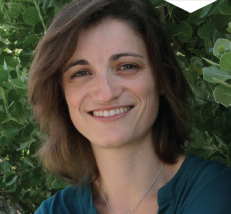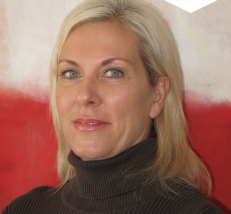Each year UCT welcomes increasing numbers of postgraduate students and postdoctoral fellows, who play a vital role in supporting existing research and driving new research across the university.

Dr Verena Bitzer
Dr Verena Bitzer joined the Graduate School of Business during 2013 as a postdoctoral fellow looking into the role of cross-sector partnerships and co-innovation in solving complex social and environmental challenges. With a PhD from Utrecht University in the Netherlands on cross-sector partnerships and global value chains, Bitzer has done extensive work in innovation in African food chains at Wageningen University.
In the face of pressing socio-ecological problems, a lack of physical resources and an increasingly complex and competitive market, the world’s economies have become more knowledge-intensive – value is created by the application of knowledge rather than by investment in hard assets. And the key to unlocking the economic and social value of knowledge is through innovation. “We need to see innovation as an investment, not an expense; as a process that focuses on providing a tangible benefit,” says Dr Bitzer.
But Dr Bitzer says that for innovation to be successful, we need to realise that it is a collective activity, generally involving many different people and organisations. “The potential of partnerships for innovation is obvious – innovation emerges when combining different sources of knowledge and experience. I’m interested in how collaborative processes create the interfaces necessary for generating innovative solutions to complex societal problems and what conditions are ideal for such processes to flourish.”

Dr Liz Lewis
After many years as a business executive, Dr Liz Lewis decided to switch track. An interest in legal studies was beckoning and led to her obtaining an LLB from UNISA in 2008. Soon afterwards she returned to her alma mater (Lewis has a BA and an HDE from UCT) and embarked on a master’s degree in the Department of Public Law, which was upgraded to a PhD in 2013.
Her area of expertise is international law: specifically, the interaction between international, national and subnational law. Dr Lewis chose this field because she is interested in both international law and subnational systems such as customary law. She feels strongly that these regimes should not be disconnected, and her present research is therefore aimed at developing judicial and legislative models that will allow customary and international law to enrich each other in a harmonious and beneficial manner. For example, the customary macro-cosmic world view, founded, amongst other things, on respect for the environment, could be explored to enhance the international environmental discourse, says Dr Lewis.
Dr Lewis currently has a postdoctoral fellowship grant from the University Research Committee and says that if she did not have this funding she would not be able to continue with her research. “I intend to make the most of this wonderful opportunity. The fellowship has given me extra motivation to bring new depth to my research,” she says.


Comments are closed.